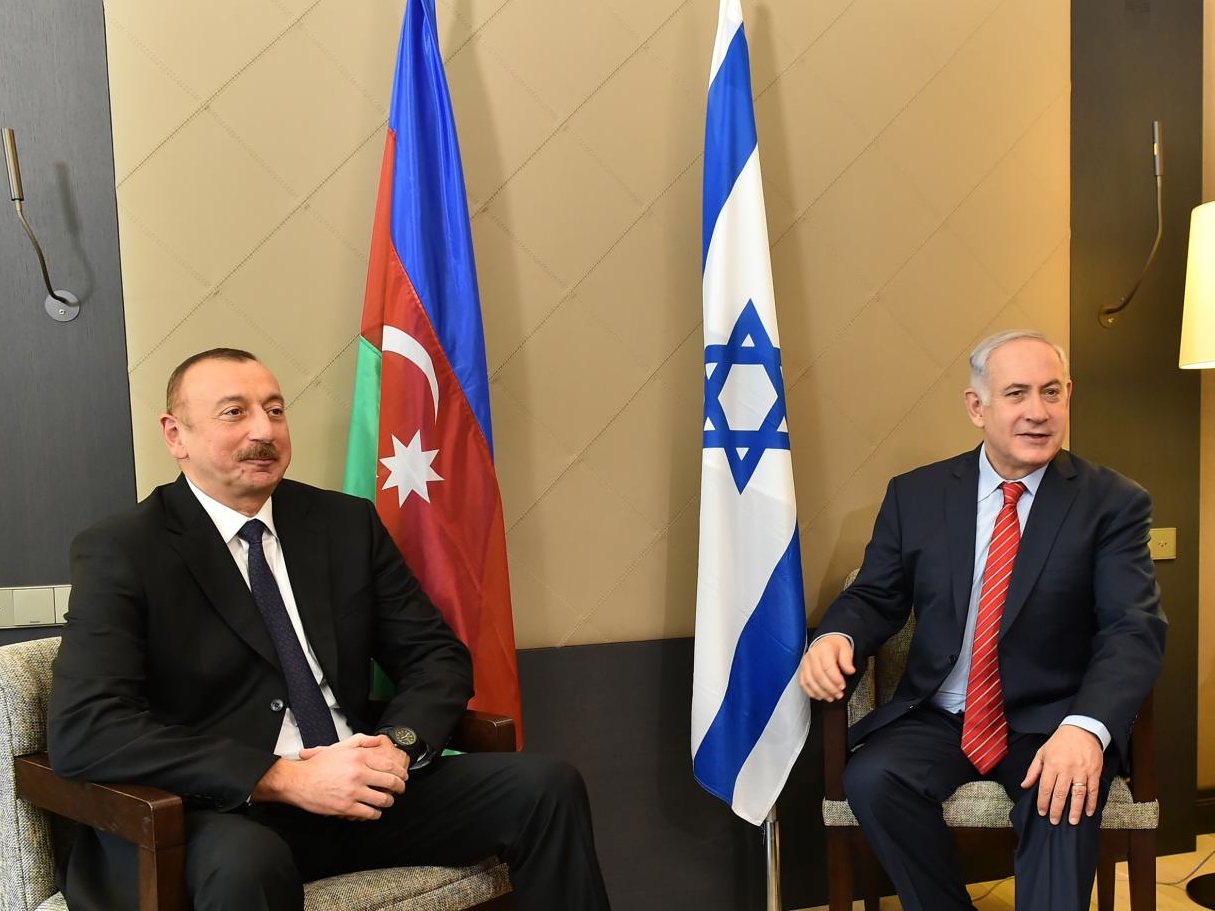Gaza, weapons, diplomacy, energy: Azerbaijan, Israel’s strategic partner
Azerbaijan might provide troops for the Gaza international stabilisation force under Trump’s peace plan. For 30 years, the Muslim nation in the Caucasus has been a key ally of the Jewish state as well as a channel of communication with Turkey. Bilateral relations are based on the common fight against Islamic extremism and terrorism.
Jerusalem (AsiaNews) – The relationship between Israel and Azerbaijan has grown in recent years in the shadow of the Gaza war and the never-ending tensions in the Caucasus between Azerbaijan and Armenia, with Russia and especially Iran, as behind-the-scenes players.
For Israel, Azerbaijan is no ordinary ally. It is its main partner in the Middle East and the second in the world, even though the two countries share neither a border nor any ethnic or religious affinity. Yet, they have consolidated a unique bond based on mutual respect and friendship, beneficial to both, something that should not be underestimated, as many observers note.
Their unity of purpose has not been undermined even by Azerbaijan’s latest domestic political upheaval, namely the sensational arrest of Ramiz Mekhtiev, better known as the "Cardinal Richelieu" of Baku.
Relations were significantly strengthened some 30 years ago, during a meeting in New York between then-Israeli Prime Minister Yitzhak Rabin and then Azerbaijani President Heydar Aliyev.
The two leaders spoke privately, without intermediaries or advisors, discussing what each country needed from the other – Israel needed a stable and reliable source of oil, while Baku sought military defence systems.
Since that time, the Israelis’ alliance with the Azeris has become one of the most stable and reliable, making Azerbaijan, as Joseph Epstein, a research director at the Endowment for Middle East Truth, put it, Israel’s second most important ally.
The one difference between Azerbaijan and Israel's other allies, particularly those in the West, is its take on the Israeli-Palestinian conflict.
Nearly all Western countries have allowed this conflict to influence their relations with Israel, even when Israel responds to Palestinian terrorist actions, as it did in the wake of Hamas’s devastating attack of 7 October 2023.
Conversely, Azerbaijan has never allowed wars and divisions in the Holy Land to affect its relations with the Jewish state, precisely because, according to some, it is aware of Islamic fundamentalism and opposes the terrorism associated with it, and therefore does not publicly judge Israel.
Proof of this is the fact that since 7 October 2023, Azerbaijan has increased its energy exports to Israel, although even before the war, according to official statistics, it was selling up to 50 per cent of its oil production.
In fact, since the early 1990s, Azerbaijan has become a key player in stabilising the Jewish state's energy security, as well as the only Muslim-majority country to maintain cordial relations with Israel.
These relations, including those of a commercial nature, have continued uninterrupted even during the worst phase of the Second Intifada.
Azerbaijan is also a regular customer for Israeli products. Since the late 2000s, it has become the largest market for Israel's weapons export with nearly 70 per cent of its military imports in the past decade coming from the Jewish state.
In September last year, the two countries signed another arms deal, securing further business for Israeli high-tech companies and boosting the Middle Eastern country’s economy.
Azerbaijan has also proven invaluable to Israel in another area, as a mediator with Turkey, despite friction and alternating periods of tension that have also occurred recently, particularly between Prime Minister Benyamin Netanyahu and Turkish President Recep Tayyip Erdoğan.
After all, Turks and Azeris consider themselves a single people living in two countries, and Turkey is Azerbaijan’s greatest friend, just as the United States is Israel's closest ally.
Azerbaijan's close relations with both Israel and Turkey make it the perfect intermediary. Ilham Aliyev, the current president, has repeatedly acted as a mediator between Israel and Turkey in recent years.
His ability to bridge the gap could prove extremely valuable in the near future, especially after the fall of Bashar al-Assad's regime in Syria and the rise to power of a new Syrian leadership led by Ahmad al-Shara'a, a fundamentalist Islamist loyal to Ankara.
Finally, a current aspect of the cooperation between the two countries might be Azerbaijan’s involvement in the international stabilisation force called to monitor and enforce the truce in Gaza between Israel and Hamas, according to the 20-point plan formulated by US President Donald Trump.
According to US officials, Indonesia, Pakistan, and Azerbaijan are among the countries expected to participate in the future force destined to police the Palestinian territory.
Discussions on its composition are still ongoing, and no official commitments have yet been made by the interested states; however, all three countries have reportedly expressed great interest in contributing to the mission, a key pillar of the entire peace process to end the war between Israel and Hamas and start reconstruction, despite doubts about its feasibility.
The Jerusalem Post addressed the matter in a recent article titled “Azerbaijan's role in Gaza stabilization could strengthen Israel, experts say”. In it, the paper, citing foreign sources, says that Azerbaijan is among the countries that could join the international effort.
Experts note that its involvement – a Muslim but secular country with advanced military and economic capabilities – could boost Israel's position and give the mission greater legitimacy in the eyes of the Islamic world.







.png)










